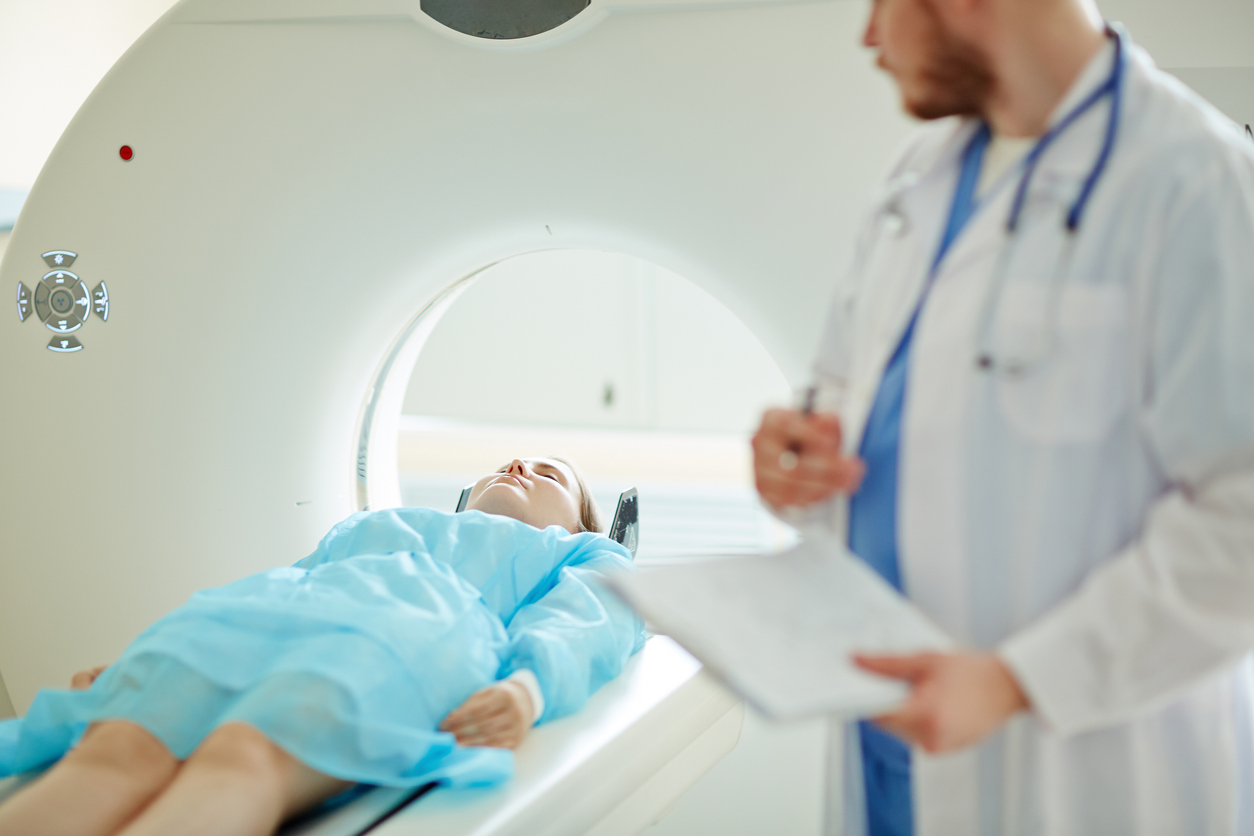Symptoms and diagnosis of ovarian cancer

Symptoms of ovarian cancer
Ovarian cancer can be hard to spot at first, as there may be no symptoms or only mild, vague symptoms early on.
Symptoms include:
- Bloated feeling
- Persistent swollen tummy
- Pain or dragging sensation in your lower abdomen (tummy), back or legs
- Vague indigestion or nausea
- Poor appetite and feeling full quickly
- Changes in your bowel or bladder habits: E.g. constipation or needing to pass water urgently.
- Feeling tired all the time
- Irregular periods or bleeding after menopause
- Pain during sex
- Abnormal vaginal discharge or bleeding (rare)
All these symptoms can be caused by conditions other than cancer, but it’s important to go to the GP and get any unusual changes checked out.
Can I be screened for ovarian cancer?
Testing for ovarian cancer when you have no symptoms is called screening. There is no national ovarian screening programme in Ireland at present this is because there is no reliable test that can accurately detect ovarian cancer in the early stages in the general public.
Ovarian cancer and family history
Ovarian cancer risk may be higher in those who have a faulty BRCA gene mutation in their family. Screening or risk-reducing surgery will be offered if you are considered at increased risk. Screening involves a referral to a gynaecologist for an ultrasound scan and a tumour-marker blood test called a ca125. It will be offered to women and people assigned female at birth with increased risk every year from the age of 35.
Unfortunately there is no convincing evidence to show screening for early ovarian cancer is effective. Your gynaecologist will discuss the pros and cons of such screening and allow you to make your own decision.
Talk to your GP if you’re worried about ovarian cancer. We have more information on genes and cancer .
Diagnosing ovarian cancer
Your family doctor (GP) will talk to you about your symptoms and may examine you by placing a gloved finger into your vagina to feel for any lumps or swelling.
Your GP will refer you to hospital if they think you need more tests.
Tests at the hospital
- Ultrasound scan: A device like a microphone passed over your tummy to give a picture of the tissues inside your body. It can show any abnormal changes.
- Transvaginal ultrasound: A small probe is put into your vagina to produce clear pictures of your womb and ovaries.
- Laparoscopy: A thin flexible tube with a camera attached to it is passed through a small cut in your tummy. The lets your doctor look for any abnormal changes in your ovaries and take sample of cells (biopsy). The test is done under general anaesthetic. You will have some stitches in your tummy after the test.
- CA125 blood test: CA125 is a chemical found in blood that is sometimes released from ovarian cancer cells. It is known as a tumour marker for ovarian cancer. Not all women with ovarian cancer will have a raised CA125.
- Biopsy: A sample of the cells is taken and looked at under a microscope in the lab to see if there are any cancer cells. The biopsy can be done during a laparoscopy.
Read more about cancer tests.

A gynaecologist is a doctor who specialises in treating problems with women’s reproductive systems, e.g. vagina, vulva, womb (uterus) and ovaries.
For more information
Phone
1800 200 700




